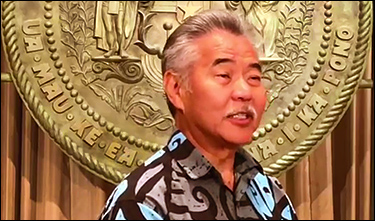By Jim Ellis

Former vice president and ex-Delaware senator Joe Biden is the Democratic front-runner in the 2020 presidential campaign.
Greeted with the reminder that the last Quinnipiac University poll of New York City residents found that 76 percent of those polled didn’t want the mayor to run for president, de Blasio launched his late-starting campaign with a video of him talking about “putting working people first,” interspersed with video footage of being chauffeured around the city in a limousine. Saddled with poor approval ratings within his home base and a late start, de Blasio is the longest of shots to become a viable candidate.
It is likely that the de Blasio declaration is the last significant announcement, meaning all of the major players are finally in the race. Seeing two dozen candidates – and while many media networks report different numbers, the total clearly exceeds 20 – it is a good time to review the field (alphabetically) and summarize how the plethora of candidates is doing. We’ll go through the first 12, and tomorrow finish up the field:
• Former Vice President Joe Biden: The clear early race leader. Biden received the announcement bump that he desired and is proving to be the man to beat. Still, much will happen before he can legitimately clinch the party nomination. In the first 24 hours after his announcement, the former VP raised $6.3 million.
• Sen. Michael Bennet (D-CO): A prostate cancer diagnosis and surgery delayed Sen. Bennet’s entry into the race, so his campaign is just getting underway. He is a second-tier candidate who is unlikely to seriously challenge for the nomination.
• Sen. Cory Booker (D-NJ): Has not gotten much early attention, but reports suggest his campaign is among the best organized in terms of ground operation. Sen. Booker could surprise in the national candidate forums and, despite current low polling performance, might become a factor as the campaign develops.


 April 23, 2019 — A new poll was released at week’s end last week, and it may be our best glimpse of the national Democratic presidential picture. As we know, the national count matters little in how the individual states will select delegates, but this polling category does provide a sound measurement of candidate momentum.
April 23, 2019 — A new poll was released at week’s end last week, and it may be our best glimpse of the national Democratic presidential picture. As we know, the national count matters little in how the individual states will select delegates, but this polling category does provide a sound measurement of candidate momentum.


